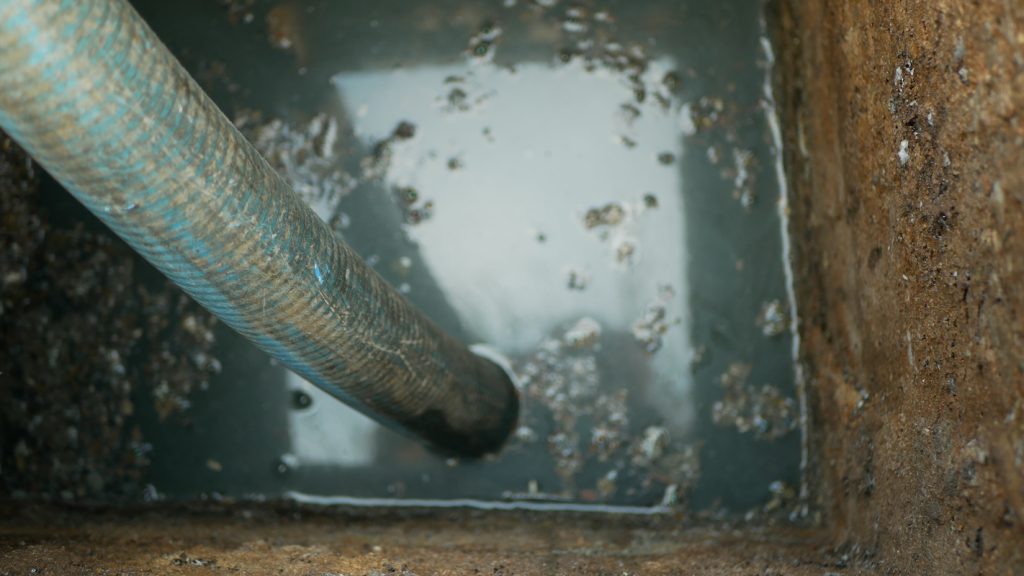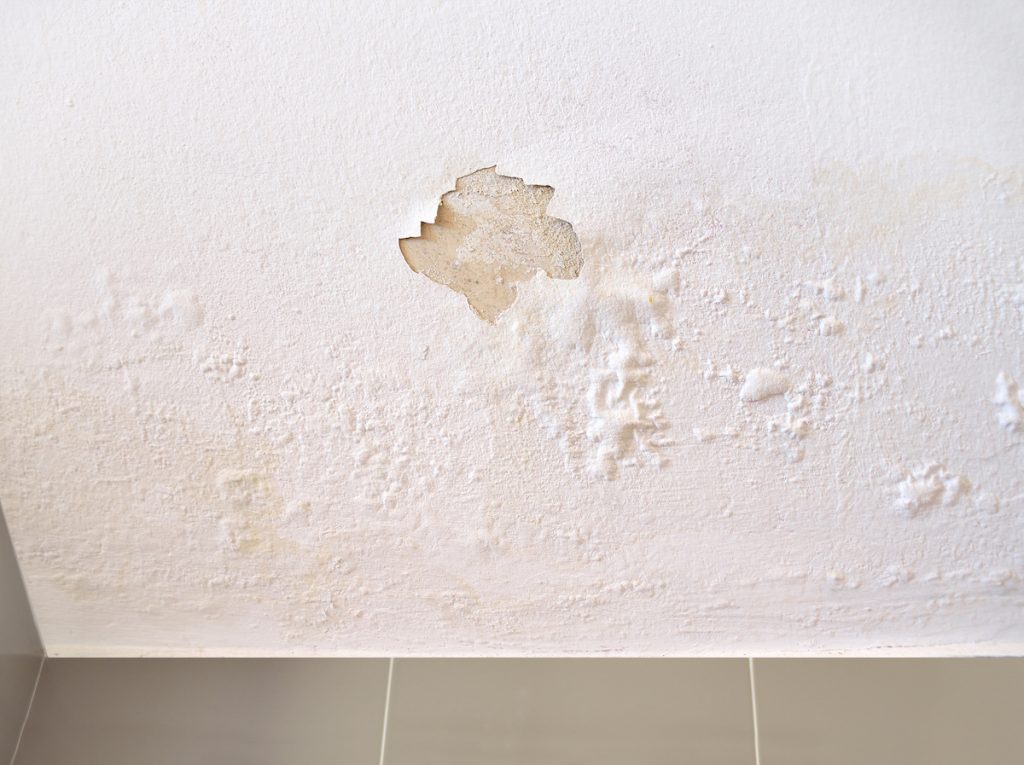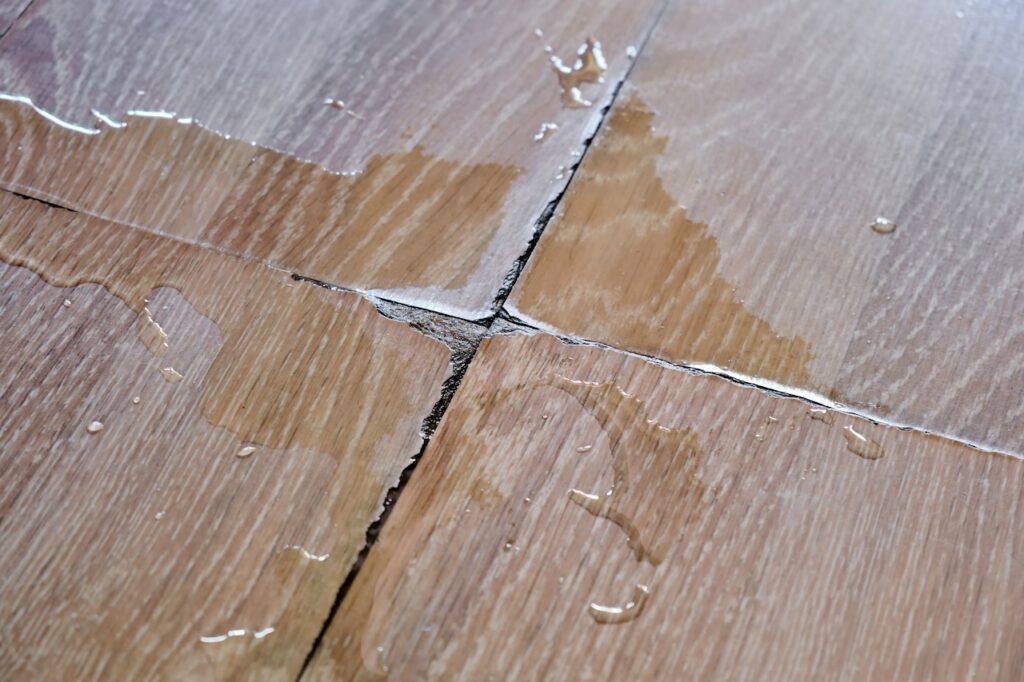
Water damage poses a frequent challenge for homeowners, manifesting in issues ranging from minor discoloration to substantial structural harm. Determining the precise timing of when such structural damage occurred can be difficult, as some of the signs of water damage may not be immediately visible.
Assessing the situation and establishing the timeline of when it happened is crucial in preventing further damage. Even seemingly minor issues can have a significant impact on your home. In this blog, we’ve gathered valuable information to help you understand potential causes of water damage, what to look out for, and how to tell if it’s new or old.
What Is Water Damage?
Water damage occurs when water infiltrates a property, causing harm to the building or its contents. Various factors can lead to water intrusion, including leaks, floods, burst pipes, and heavy rainfall. Prolonged exposure to standing water can also cause damage. Water damage can affect a range of surfaces, such as walls, floors, ceilings, furniture, and electronic equipment.
Identifying the Causes of Water Damage
There are several potential causes of damage, including leaks, floods, and humidity, that homeowners and property managers should keep in mind.
Plumbing Issues
This is often the primary cause of water damage. Leaky pipes, broken water lines, or faulty appliances like water heaters, washing machines, and dishwashers can malfunction and cause water-related problems. If left unattended, even a tiny leak can lead to significant water damage as it can seep into the walls and floors, resulting in mould growth and compromising the property’s structural integrity.
Natural Disasters
Severe damage is caused by natural disasters such as hurricanes, floods, and heavy rainfall. Heavy rains can cause flooding, while storm surges often accompany hurricanes, which can damage property. It is important to note that floodwaters contain dangerous contaminants and pollutants that risk human health.

Faulty Roofing
Water damage often occurs due to roof leaks. If your roof has any damaged or missing shingles or tiles, or if the flashing around the chimney requires repair, there’s a chance that water can infiltrate into the attic and affect walls, ceilings, and floors.
HVAC Systems
Improper functioning of heating, ventilating, and air conditioning (HVAC) systems, including cooling units and heaters, can also lead to water damage. When a unit’s condensation line gets clogged due to a malfunction, water can flow into the property and cause damage. A leaking or broken heater installed in the attic or basement can pose a significant threat as the water damage directly affects the property’s interior.
Determining Whether Water Damage is New or Old
Identifying the signs of water damage can be challenging, particularly if it has dried. One of the vital steps in addressing water damage is verifying its age. Below are some valuable tips that can help you figure out whether the water damage is new or old.
Analyze Your House’s History and Building Materials
Water damage affects various materials in different ways. For example, thick paint and tiles retain water more efficiently than thin ones, making the latter more susceptible to damage even from small amounts of water. This often appears as peeling paint.
Understanding the materials used in your home is beneficial, as water affects each one differently. If your property features hard materials like tiles or bricks and exhibits signs of water damage, the damage has likely been present for some time.
Check for Water Rings and Water Stains
One of the most telltale signs of water damage is water stains and rings. If you notice a dark spot or stain on your wall or ceiling, there’s a chance it’s fresh water damage. On the other hand, older water damage can develop rings on the surface. The more rings there are, the older the damage. Observing colour changes in the circles can indicate whether the water is wet, dry, or has been there for a long time. Rings are more likely to occur when the water leak is occasional, such as water spots below a roof leak that only gets wet during rain.

Water damage can appear as water stains or rings on your ceiling.
Check for Warping
When excess water seeps into materials, it can cause them to warp, swell, or buckle. To identify whether the water damage is new or old, examine the condition of your wooden floors, walls, or ceilings. If they look distorted, the damage could be old.
On the other hand, if there is no noticeable warping or damage, it could be a recent leak. This visual cue can help you determine the timeline of the damage and make informed decisions about necessary repairs or interventions.
Smell for Musty Odours
There can be a lingering smell when an area suffers from water damage. This smell can be musty. If you notice it, the damage will likely be old. If there is no unpleasant odour, it could indicate that the damage is recent.

Generally, warped or cracked wood is a sign of a recent water leak.
Search for Watermarks or Decay
Watch for watermarks if you’re trying to determine whether water damage is new or old. Generally, newer water damage will have a visible watermark that is still wet, while older water damage may have a dry and faded watermark. If you notice signs of decay, your property has likely been exposed to water for an extended period. While decay is typically only seen in extreme situations, like flooding, taking action as soon as you notice it is important.
A professional water damage restoration company can help resolve the issue quickly and efficiently due to the property and health risks of water damage.
Contact PuroClean Today for Professional Water Damage Restoration Services



 PuroClean of West Boise
PuroClean of West Boise